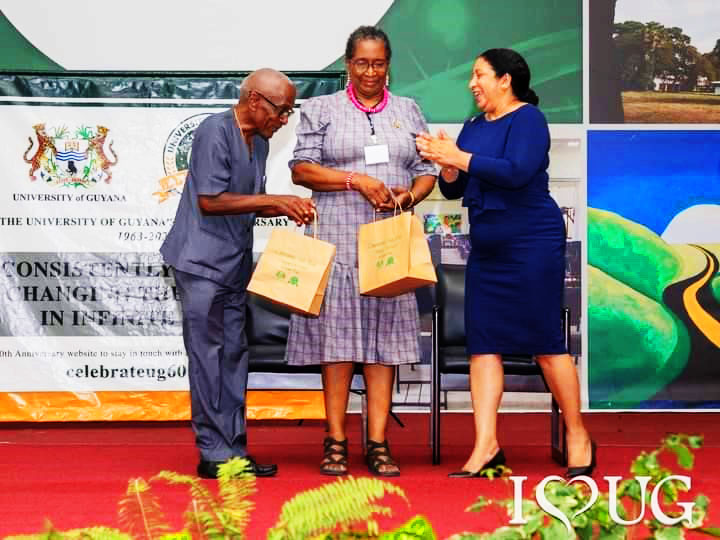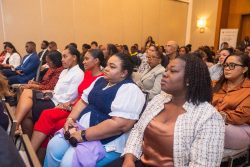Underscoring, among other things, the loss of human resources, particularly university graduates through migration, and the impact this has had on national development and transformation, the recently concluded Diaspora Conference called for the establishment of an international institute for the study of diasporas and migration at the University of Guyana.
Describing this need as critical and urgent, the conference advocated for the institute to be set up “within the shortest possible time.” It was recommended that an international working group should be created within a month’s time to spearhead the work of establishing the institute.
According to a press statement from the university following the conclusion of the conference, another critical action which needs to be urgently undertaken is to support and undergird with research, training and direct discussion, the “excellent” initial work of the Diaspora Engagement Unit and other state departments in the country.
Further, it said that the University of Guyana Press must be mandated to publish selected papers and abstracts of the conference within one year of its conclusion.
The university release said that another recommendation was for all recorded presentations to be distributed within one month and there should be extended online registration and access for those who missed the conference and are requesting this service, as a test of a possible new model of conferencing being pioneered by the university.
Yet another urgent need identified, the release said, was for UG to be able to work with relevant and interested partners to create a local and regional database of scholarly items to support the present study, policy development and actions around the ecology of diaspora work.
The university said that it will seek to further facilitate and support the continuous and positive inter-change between students and other youth, in and from the primary and secondary diasporas and to establish a working group within the next two months to spearhead that work.
The university also expressed the hope that linkages would be created to facilitate the continuous exposure of scholars and students wishing to develop expertise in diaspora and migration studies, in order to ensure the highest quality and systematic scholarship, in particular the role of technology in diaspora matters.
At the opening of the conference on Monday, Vice Chancellor Professor Paloma Mohamed-Martin had pointed out that while the Guyanese diaspora is resilient, our citizens make many other country’s great; the nuances of which she stressed require “urgent scholarly attention.”
Against this background, she had said that among the topics at the three-day conference were repatriation from the diaspora, and the high numbers of immigration by diverse groups of non-Guyanese into the country.
Specifically, she said that the Univer-sity of Guyana, over its 60 years of existence had produced more than 50,000 graduates at least 30% of whom now form the upper and middle socio-economic layers of Guyanese diaspora.
“We might have lost over US$1 trillion through the emigration of our graduates to other countries mostly in North America and the Caribbean over the last five decades,” the VC said.
The release noted that in an effort to host the third Diaspora Conference in the next two years, immediate steps must be taken towards establishing an international multi-disciplinary working group to begin its planning and resourcing.
The proposed theme for the 2025 conference is “Matters Diaspora – Technology and Diaspora in the 21st Century.”
The just-concluded conference was held under the theme “Calling 592: Honouring, Researching, Reigniting Diaspora.” It focused on the embedded power of diasporas and in particular the Guyanese diaspora’s ability for “resilience, social and spatial reorganisation, innovativeness, cultural diffusion, transnational agency and transformation.”
At the opening, Mohamed-Martin said recent reports have suggested that Guyana has the largest per capita diaspora in the world with three times more Guyanese living outside, than inside the country; noting that their achievements and actions have had significant impact on Guyana, and their host countries.
She said for instance, it is reported that remittances back to Guyana in 2019 have been in the vicinity of US$2.6 billion; and foreign direct investment a further US$1.6 billion.






